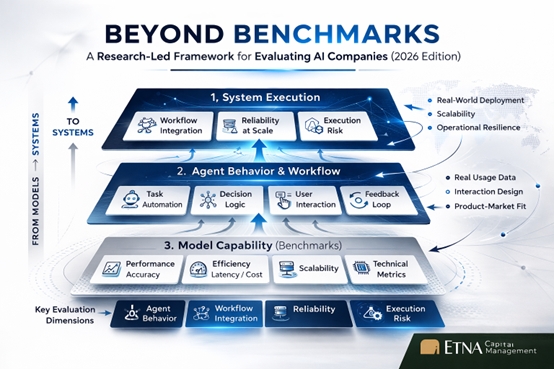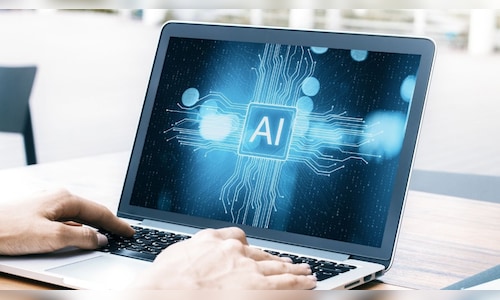Adam Riccoboni, CEO of artificial intelligence (AI) development firm Critical Future, considers the future benefits that AI will bring to the world’s population and, specifically, to the field of railway signalling and telecommunications.
I firmly believe that AI will be the most important technological revolution ever. Why? Because intelligence can be implemented into all the little nooks and crannies of our lives. With AI, we can create an enchanted world.
AI is not as new as some people may think. I have been running AI development projects long before it was fashionable, and AI has had some strong supporters in the past.
The CEO of Google, Sundar Pichai, said: “AI will be more important… than electricity or fire.” Stephen Hawking said: “AI could be the biggest event in the history of our civilization.” And even Vladimir Putin, rather ominously, said: “Whoever rules in AI will rule the world.”
The British legacy in AI development
Where did it all begin? Here in England. Alan Turing, I believe, was the real founder of AI and Britain has played a crucial role in the development of AI. Geoffrey Hinton, an Englishman, made the key breakthrough in backpropagation which made deep learning take off, and the founder of Google DeepMind, Demis Hassabis, is also British.
The term Artificial Intelligence is American and came from the Dartmouth Conference in 1955. John McCarthy coined the term “artificial intelligence” and the name was immediately controversial. AI pioneer Arthur Samuel remarked that “the term ‘artificial’ makes you think there is something kind of phony about this, or else it sounds artificial, as if there is nothing real about this work at all.”
But Allen Newell, another founding father of AI, commented, “It is a good name. Like all names of scientific fields, it will grow to become exactly what its field comes to mean.”
Alan Turing not only invented the computer and helped win the Second World War, but he also originated machine learning, coining the term “thinking machines”. In 1951, he predicted that, in the future, “machines would be able to converse with each other to sharpen their wits. At some stage, therefore, we should expect the machines to take control.”
Turing’s codebreaking colleague from Bletchley Park, John Irving Good, developed this idea further with the notion of the intelligence explosion. “As machines can surpass all man’s intellectual activities, and as designing machines is one such activity, an ultra-intelligent machine could design even better machines; therefore, there would be an ‘intelligence explosion’, and the intelligence of man would be left far behind.”
The importance of this concept of the “intelligence explosion” should be underlined. This mechanism could lead to the singularity, a time when machine intelligence will exceed all human intelligence combined, and a Superintelligence will be born.
The truth is, though, that no one knows if the singularity will happen in a few years, or centuries, or perhaps not happen at all. But it is clear we will see a paradigm shift because of AI.
Big picture for railway signal engineers
AI has the potential to dramatically transform railway signal engineering. Generative design can use machine learning to predict the optimal placement of signals based purely on data. AI can optimize the entire railway network by simulating various scenarios to suggest the most effective signal timings and maintenance schedules.
AI can play a crucial role in enhancing safety through the prediction of hazards and incidents before they occur and by forecasting maintenance needs to prevent failures. It can identify anomalies in signal data, enhancing safety and security, and can detect defects and identify threats in real time.
Moreover, as autonomous train technology progresses, AI can seamlessly integrate with these systems, providing real-time optimised signalling.
There are countless other applications of AI enhancing the efficiency, safety and productivity of railway signalling.
Railway signal engineering is incredibly complex and demands a high level of skill and capability. It is the expertise of signalling engineers that ensures the safety and efficiency of our railway systems, a task that cannot simply be handed over to machines. The engineers’ role is irreplaceable, and AI will serve as a tool to augment their capabilities, not replace them.
IRSE Dinner. Photo credit: IRSE
Future employment
Ai will therefore not lead to mass unemployment, a common fear. Think of free trade between nations or across the United States. Free trade brings in new intelligent workers, but it leads to economic growth which fuels employment rather than creating mass unemployment. It also creates sectoral shifts based on comparative advantage. If a nation has a comparative advantage in one area, it will gain jobs there and lose them in other areas where it does not have this advantage.
Likewise, AI will fuel productivity and benefit the economy, stimulating growth which boosts jobs. However, it will create shifts based on comparative advantage. Tasks where machines have a comparative advantage will be done by machines, and tasks where humans have an advantage will be done by humans.
Overall, we will all be better off.
So, AI won’t leave us unemployed, but it will change the way we work. We will need to focus on the advantages humans have over machines—general problem-solving skills, relationship skills, imagination, big-picture thinking and connecting the dots. The author Geoff Colvin summarises it beautifully: “As technology drives forward more powerfully every year, so does the transition to the newly valuable skills of empathising, collaborating, creating, leading, and building relationships…
“If the prospect sounds worrying, it shouldn’t. On the contrary, it’s wonderful news. Just think of what we are being asked to do—to become more essentially human, to be the creatures we were once and were always meant to be. In the deepest possible sense, you’ve already got what it takes.”
Adam Riccoboni will be one of the speakers at Artificial Intelligence in Railways – a full day seminar from the IRSE (Institution of Railway Signal Engineers) being held in London on Friday 14 June 2024. More information can be found on the IRSE website and Rail Business Daily readers can qualify for a discount by visiting this link.






